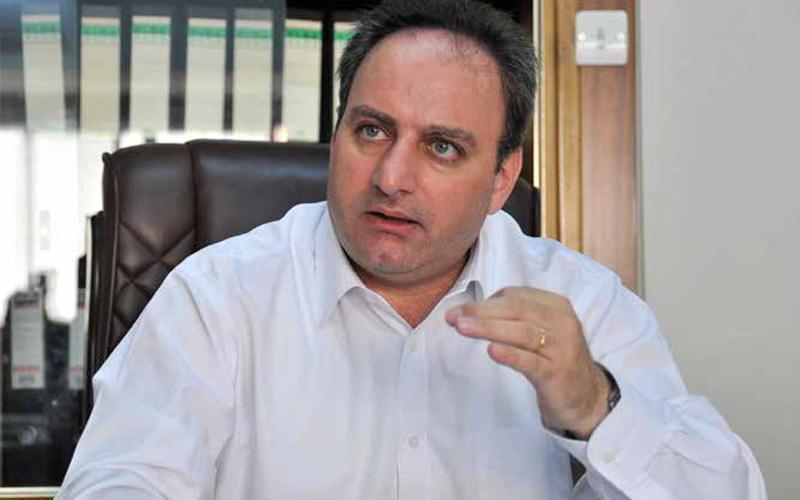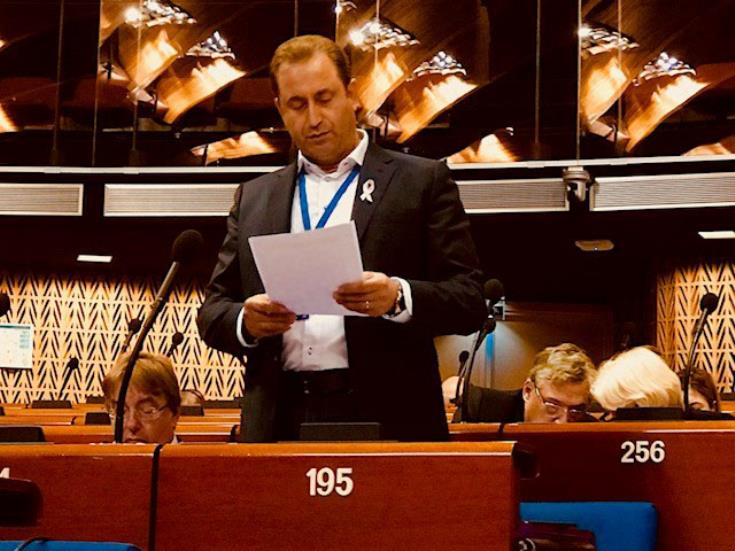
State guarantees and oxygen in the economy
Sunday 24th May 2020 “Haravgi” newspaper
Article by Stefanos Stefanou, AKEL C.C. Spokesperson
The rejection of the government’s state guarantees bill will leave the economy without oxygen, the government claims. There is no doubt whatsoever that the economy needs oxygen. But the question is, will government guarantees to the banks act effectively to revive the Cyprus economy?
This question also refers to the intense debate underway within the EU itself as well: More provision of support or more granting of loans? This is what is currently at stake. In AKEL’s view, in the prevailing economic conditions in Cyprus, the tool of state guarantees will not yield the results that the government expects. It will not help businesses that have been hit hard by the crisis to survive.
Government guarantees to the banks are a tool that aim at boosting businesses accessibility to securing loans by providing banks with financial security from any possible losses. In Cyprus, it is mainly small and medium-sized enterprises (SME’s) that have lost access to loans. On the one hand, they are heavily in debt and on the other hand, the banks do not grant them loans, because they do not consider them credit worthy.
State guarantees come to improve one part of the equation, namely securing financial security for the banks, but they do not touch on the other part of the equation, that is to say, the SME’s. These businesses, many of which are finding it difficult to make ends meet, cannot but neither do they want to be burdened with new loans, risking the loss of the cash collateral they deposit in the banks. It is for this reason that we have pointed out that the tool of state guarantees would represent a worthless gift for SME’s and self-employed workers.
Besides that, from the moment the banks decide on the granting of loans, the targeting in the loaning cannot be controlled. And there were, not unjustifiably, numerous concerns about the intensification of corruption and interwoven interests with a focus on the banks and the established order associated with them. These concerns have grown as a result of the government’s response to the Parliament’s efforts to strengthen transparency and control over banks.
Instead of state guarantees to the banks, AKEL proposed a combination of tools to provide support to the Cyprus economy with the state operating playing the major role. We did not rule out state guarantees, but as a complementary and not as the main tool/instrument. We have proposed that what matters right now is the provision of targeted support towards SME’s and self-employed workers, who are facing the problem of their very survival. The government has persistently refused to proceed to providing SME’s with support. Even when, under pressure from the opposition, it decided to do so, the funds it allocated were insufficient.
The government, for some inexplicable reason, withdrew together with state guarantees bill also the one-time grant, which was not only supported by all the parties, but in a joint letter they addressed to the President of the Republic supported its increase. For that reason, if the government wants to help effectively, it should bring back the one-time grant and the Parliament will vote for it.
The government claims that it has no other financial resources and that is why it has reduced the one-time grant fund to € 100 million. We do not suggest that the state’s capabilities are unlimited. However, according to the data provided by the government to the Parliament, there is room for an increase in the grant. One example is in fact convincing enough. In the first state guarantees bill there was a provision for subsidising interest rates with an amount of € 250 million. In the second bill the government removed this provision. If we assume that the € 100 million went to the one-time grant, logically there should be another € 150 million. The government has never given an answer as to the whereabouts of this specific amount.
The government expresses its anger at the many amendments that were tabled by the parties. We won’t answer that. We will let the President of ruling DISY party Averof Neophytou himself answer, with the statements he made when in opposition: “The institution of Parliament has every right and obligation to exercise parliamentary control and has the right to approve and reject, but also to amend.” As one Cypriot saying goes, Practice what you preach…




